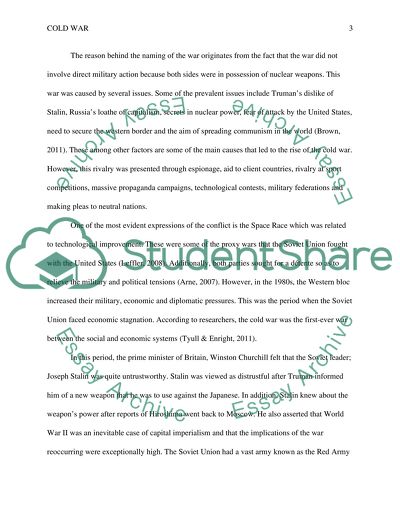Cite this document
(“Cold war Essay Example | Topics and Well Written Essays - 1500 words”, n.d.)
Retrieved from https://studentshare.org/other/1399328-cold-war
Retrieved from https://studentshare.org/other/1399328-cold-war
(Cold War Essay Example | Topics and Well Written Essays - 1500 Words)
https://studentshare.org/other/1399328-cold-war.
https://studentshare.org/other/1399328-cold-war.
“Cold War Essay Example | Topics and Well Written Essays - 1500 Words”, n.d. https://studentshare.org/other/1399328-cold-war.


